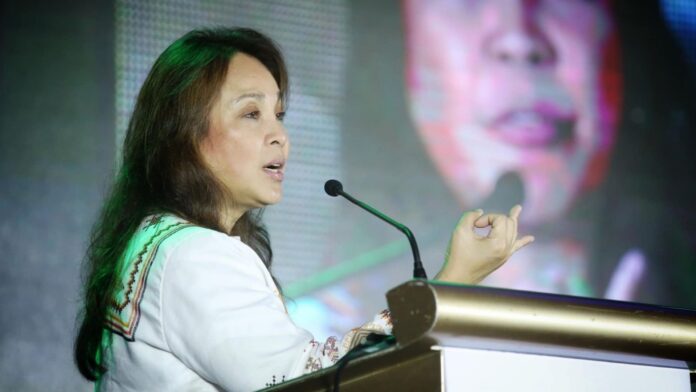Amid the looming food crisis brought about by the war in Ukraine, re-elected Senator Loren Legarda urged the government to deliberate on changing the existing food system in the Philippines.
“In an interconnected world, we are faced again with the negative implications of the war in Ukraine. Rising food and energy prices are bringing about food shortages. The conflict will have far-reaching consequences and trigger lasting crises, especially for food security, health, and even the environment,” Legarda said in a news release on Thursday.
Legarda mentioned how the Covid-19 pandemic and Ukraine crisis revealed the vulnerability of the country’s food supply chain, which could eventually jeopardize food and nutritional safety.
“Ipinakita ng Covid-19 pandemic at ng krisis sa Ukraine kung gaano ka-vulnerable ang ating mga food supply chain, at kung paano sa isang iglap ay maaaring malagay sa alanganin ang food at nutritional safety ng milyun-milyon nating mga kababayan [The Covid-19 pandemic and the crisis in Ukraine have shown how vulnerable our food supply chains are, and how in an instant the food and nutritional safety of millions of our countrymen can be jeopardized],” she said.
Legarda emphasized that to have a sustainable, resilient, and regenerative food system in the country, it is important for the government to provide the necessary support for agriculture and fisheries, especially for small farmers.
“Kung susuportahan natin ang ating mga magsasaka at mga mangingisda, magkakaroon tayo ng matibay na pundasyon at solusyon para sa ating problema sa food security at sustainability ng ating mga food sources [If we will support our farmers and fishermen, we will have a strong foundation for and solution to our food security problem and the sustainability of our food sources],” Legarda said.
Legarda said that the world continues to experience the repercussions of the Russia-Ukraine conflict on prices and food supply. One of these repercussions includes high energy costs that cause high prices for fertilizers, resulting in smaller harvest and income for small farmers.
Legarda underscored that these issues call for a transition to regenerative food systems that “put power back in the hands of farmers and produce using local and renewable inputs.”
“For our world’s broken food systems, the war in Ukraine should be a wake-up call for regenerative agriculture systems,” she said.
In 2018, the Food and Nutrition Research Institute of the Department of Science and Technology reported that about 1,717 metric tons of food are wasted each year.
The International Rice Research Institute also reported that the Philippines, the world’s biggest rice importer, wastes PHP23 million worth of rice every day.
“Our people are hungry and malnourished, and yet we waste 1,717 metric tons of food. Imagine if every Filipino reduced their food waste. This would effectively improve the availability of food and help solve hunger while also reducing greenhouse gas emissions associated with food that is not consumed,” Legarda said.
Legarda co-authored the Organic Agriculture Act of 2010 (Republic Act or RA 10068), which seeks to promote, propagate, develop, and implement the practice of organic agriculture in the Philippines. This will be done by cumulatively conditioning and enriching soil fertility, increasing farm productivity, reducing environmental pollution and destruction, and preventing natural resources depletion, among others.
She is also the co-author of the Agri-Agra Reform Credit Act of 2009 (RA 10000), which mandates all government and private banking institutions to allocate at least 25 percent of their total loanable funds for agriculture and agrarian reform beneficiaries (ARBs), of which, 15 percent must be allocated to the agricultural sector and the remaining 10 percent to ARBs.
Legarda is also the co-author of the Rural Farm Schools Act (RA 10618), and House Bill 8385 or the Integrated Urban Agriculture Act of 2020, among others.
Legarda had previously initiated more fund allocations for agricultural programs such as the National Rice Program, National Livestock Program, National Corn Program, and High-Value Crops Development Program.
Photo Credit: Facebook/iamlorenlegarda


